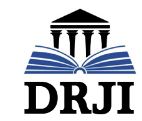Open Access Policy
This journal provides immediate open access to its content on the principle that making research freely available to the public supports a greater global exchange of knowledge.
Publications Ethics
To maintain the quality of the manuscript and avoid publishing / plagiarism violations in the publishing process, the editorial board establishes the ethics of scientific publication for Dharmawangsa : International Journals of The Social Science, Education and Humanities. The ethical rules of this publication apply to writers / authors, editors, reviewers, and managers of journals / editors. The ethics of the publication refer to The Committee on Publication Ethics (COPE).
Author Ethics
- Reporting; the writer must provide honest, clear and comprehensive information about the process and results of his research to the editors, and keep his research data properly and safely.
- Originality and plagiarism; the writer must ensure that the manuscript that has been sent / submitted to the editor is the original manuscript, written by himself, sourced from his own ideas and ideas, and not to copy the writings or ideas / ideas of others. Authors are strictly prohibited from naming the reference sources cited to other people's names.
- Repeat shipping; the author must inform that the manuscript sent / submitted to the editor is a manuscript that has never been sent / submitted to the journal publisher / other publications. If a redundancy is found in sending the manuscript to another publisher, the editor will reject the manuscript sent by the author.
- Author status; the writer must inform the editor that the writer has competence or qualifications in certain fields of expertise in accordance with the field of publication science, namely librarianship. The author who sent the manuscript to the editor was the first author (co-author) so that if found a problem in the process of publishing the manuscript can be resolved immediately.
- Error writing the script; the writer must immediately inform the editor if an error is found in writing the script, both the results of the review and the edit. Writing errors include writing the name, affiliation / agency, quotations, and other writings that can reduce the meaning and susbtansi of the manuscript. If that happens, the writer must immediately propose improvements to the manuscript.
- Disclosure of conflicts of interest; the writer must understand the ethics of scientific publications above to avoid conflicts of interest with other parties, so that the manuscript can be processed smoothly and safely.
Editor's Ethics
- Decision of publication; editors must ensure that the review process of the manuscript is comprehensive, transparent, objective, fair and wise. This is the basis for the editor in making decisions on a text, rejected or accepted. In this case, the editorial board acts as the manuscript selection team.
- Information publication; editors must ensure that writing guidelines for writers and other interested parties can be accessed and read clearly, both in print and electronic versions.
- Distribution of peer-reviewed manuscripts; the editor must ensure the reviewer and material of the manuscript for review, as well as clearly inform the reviewer of the terms and process of the manuscript.
- Objectivity and neutrality; the editor must be objective, neutral, and honest in editing the manuscript, regardless of gender, business side, ethnicity, religion, race, ethnicity, and author's citizenship.
- Confidentiality; editors must maintain all information properly, especially those related to the privacy of the author and the distribution of the manuscript.
- Disclosure of conflicts of interest; editors must understand the ethics of scientific publications above to avoid conflicts of interest with other parties, so that the process of publishing manuscripts runs smoothly and safely.
Reviewer Ethics
- Objectivity and neutrality; the reviewer must be honest, objective, unbiased, independent, and only in favor of scientific truth. The process of studying the manuscripts is done professionally without distinguishing gender, business side, ethnicity, religion, race, inter-group, and citizenship of the author.
- Clarity of reference sources; the reviewer must ensure that the source of reference / citation of the manuscript is appropriate and credible (accountable). If errors or deviations are found in writing the reference / quote source, the reviewer must immediately inform the editor to make corrections by the author according to the note of the reviewer.
- Peer-review effectiveness; The reviewer must respond to the manuscript that has been sent by the editor and work according to the set of peer-reviewed manuscripts (maximum 2 weeks). If additional time is needed in the review of the manuscript, it must immediately report (confirmation) to the editorial secretariat.
- Disclosure of conflicts of interest; The reviewer must understand the ethics of scientific publications above to avoid conflicts of interest with other parties, so that the process of publishing a manuscript runs smoothly and safely.
Journal Management Ethics
- Decision-making; the manager of the journal / editorial board must describe the mission and objectives of the organization, especially those relating to policy making and journal publishing decisions without any particular interest.
- Freedom; journal managers must provide reviewers and editors with freedom to create a comfortable work environment and respect the privacy of writers.
- Warranties and promotions; Journal managers must guarantee and protect intellectual property rights (copyrights), and be transparent in managing funds received by third parties. In addition, the journal manager must publish and promote the results of the publication to the public by providing guarantees of benefits in the use of the manuscript.
Disclosure of conflicts of interest; Journal managers must understand the ethics of scientific publications above to avoid conflicts of interest with other parties, so that the process of publishing manuscripts runs smoothly and safely.

11.jpg)
















